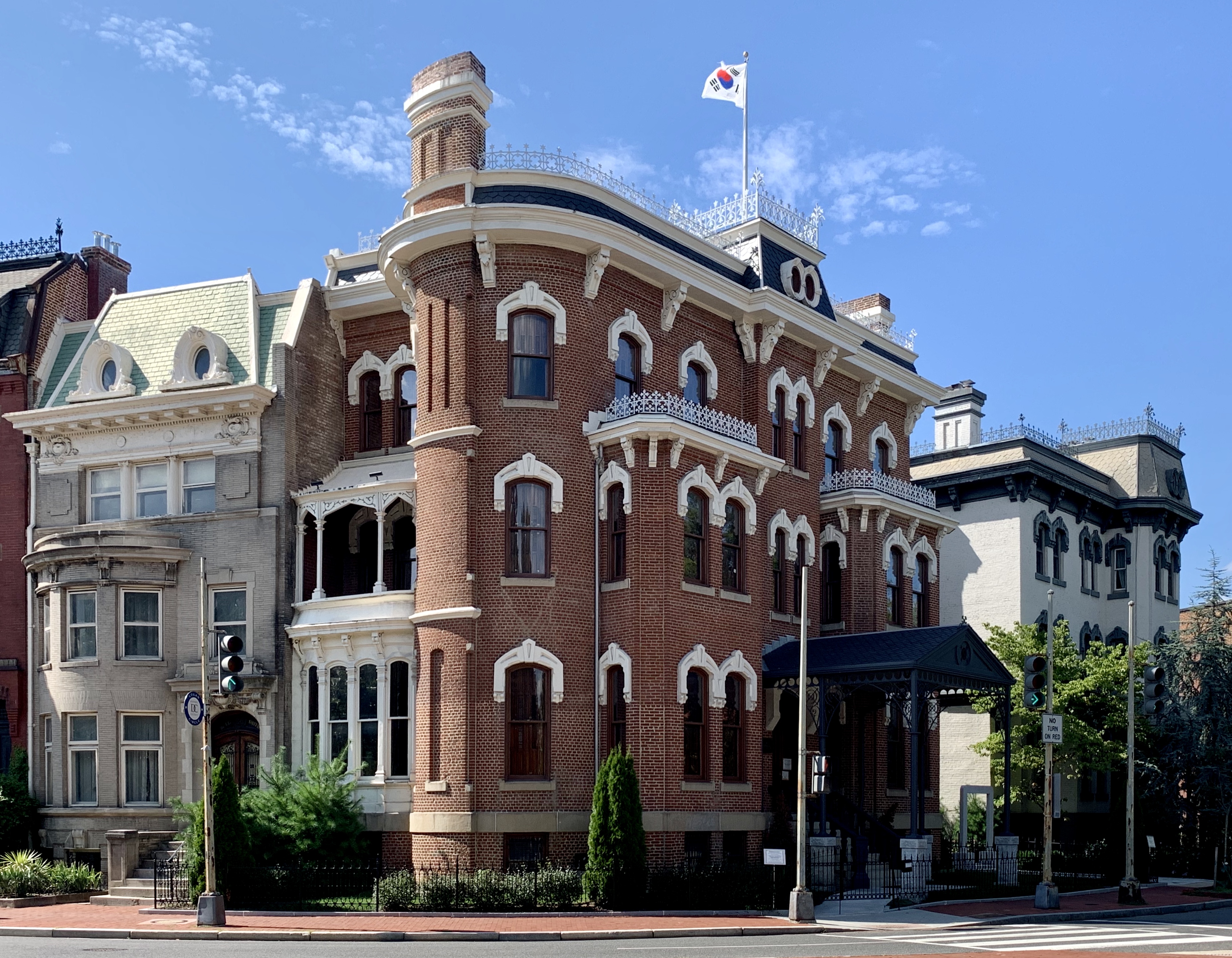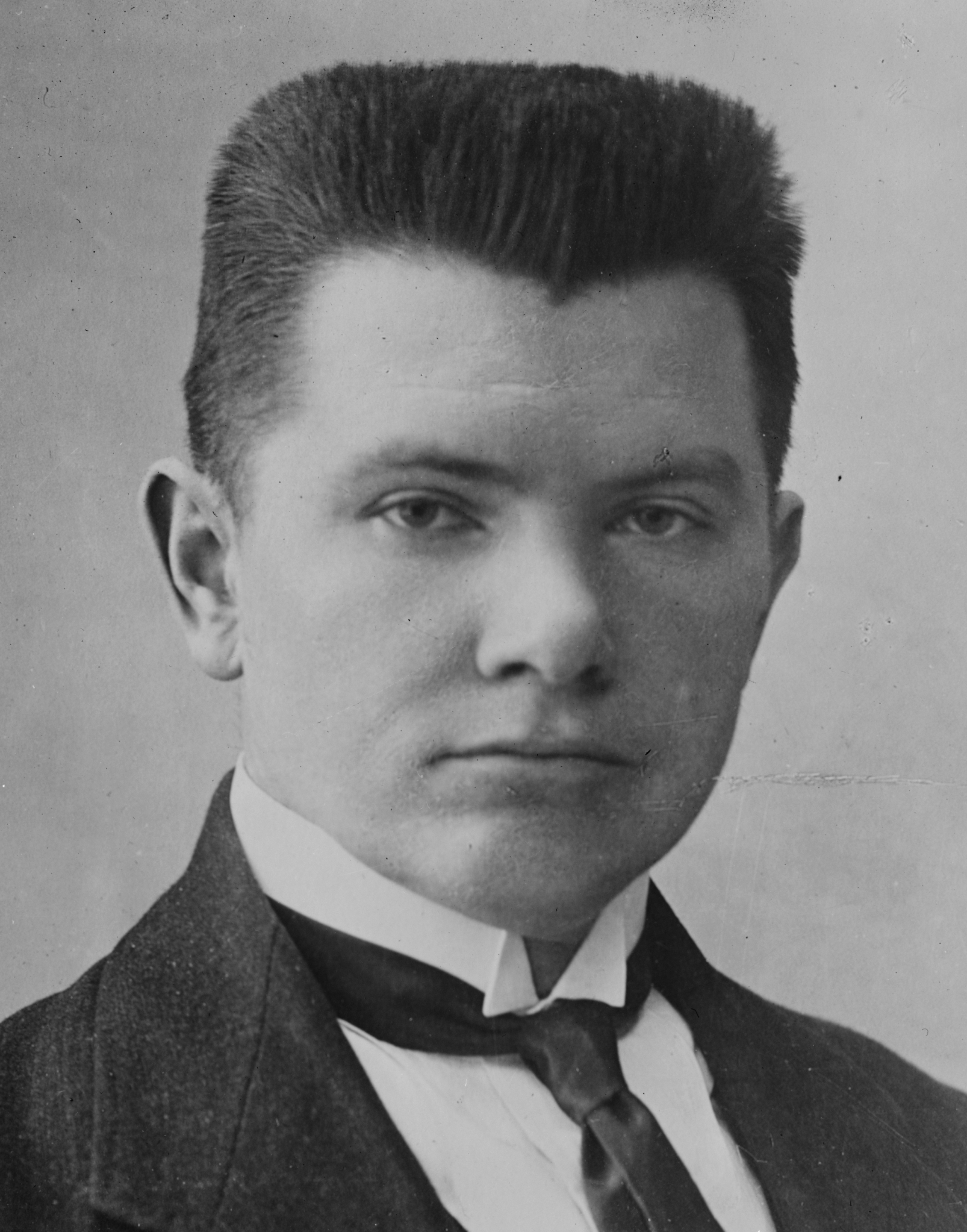|
Baltic Legations (1940–1991)
The Baltic Legations were the missions of the exiled Baltic diplomatic services from 1940 to 1991. After the Soviet occupation of the Baltic states in 1940, the Baltic states instructed their diplomats to maintain their countries' legations in several Western capitals. Members of the Estonian diplomatic service, the Latvian diplomatic service and the Lithuanian diplomatic service continued to be recognised as the diplomatic representatives of the independent pre-World War II states of Estonia, Latvia and Lithuania, whose annexation by the Soviet Union was not recognised by the United States, the United Kingdom, or France. The legations provided consular services to exiled citizens of the Baltic states from 1940 to 1991. History Between May and June 1940, the Baltic governments reached a secret decision that in the event of an emergency, the powers of government to appoint and recall diplomatic and consular representatives were assigned to the heads of the respective legations i ... [...More Info...] [...Related Items...] OR: [Wikipedia] [Google] [Baidu] |
Occupation Of The Baltic States
The Baltic states of Estonia, Latvia and Lithuania were invaded and occupied in June 1940 by the Soviet Union, under the leadership of Stalin and auspices of the Molotov-Ribbentrop Pact that had been signed between Nazi Germany and the Soviet Union in August 1939, immediately before the outbreak of World War II. The three countries were then annexed into the Soviet Union (formally as " constituent republics") in August 1940. The United States and most other Western countries never recognised this incorporation, considering it illegal. On 22 June 1941, Nazi Germany attacked the Soviet Union and within weeks occupied the Baltic territories. In July 1941, the Third Reich incorporated the Baltic territory into its ''Reichskommissariat Ostland''. As a result of the Red Army's Baltic Offensive of 1944, the Soviet Union recaptured most of the Baltic states and trapped the remaining German forces in the Courland pocket until their formal surrender in May 1945. Latvian plenipotentiar ... [...More Info...] [...Related Items...] OR: [Wikipedia] [Google] [Baidu] |
Legation
A legation was a diplomatic representative office of lower rank than an embassy. Where an embassy was headed by an ambassador, a legation was headed by a Envoy Extraordinary and Minister Plenipotentiary, minister. Ambassadors diplomatic rank, outranked ministers and had precedence at official events. Legations were originally the most common form of diplomatic mission, but they fell out of favor after World War II and were upgraded to embassies. Through the 19th century and the early years of the 20th century, most diplomatic missions were legations. An ambassador was considered the personal representative of their monarch, so only a Great power, major power that was a monarchy would send an ambassador, and only to another major power that was also a monarchy. A republic or a smaller monarchy would only send a minister and establish a legation. Because of diplomatic reciprocity, even a major monarchy would only establish a legation in a republic or a smaller monarchy. For example, ... [...More Info...] [...Related Items...] OR: [Wikipedia] [Google] [Baidu] |
Estonian Diplomatic Service
Estonian may refer to: * Something of, from, or related to Estonia, a country in the Baltic region in northern Europe * Estonians, people from Estonia, or of Estonian descent * Estonian language * Estonian cuisine * Estonian culture See also * * Estonia (other) * Languages of Estonia * List of Estonians This is a list of notable Estonians. Architects * Andres Alver (born 1953) *Dmitri Bruns (1929–2020) * Karl Burman (1882–1965) * Eugen Habermann (1884–1944) *Georg Hellat (1870–1943) *Otto Pius Hippius (1826–1883) * Erich Jacoby (1885� ... {{Disambiguation Language and nationality disambiguation pages ... [...More Info...] [...Related Items...] OR: [Wikipedia] [Google] [Baidu] |
Latvian Diplomatic Service
The Latvian diplomatic service in exile was the only governmental body of the Republic of Latvia which continued its activities during the Nazi and Soviet occupation of Latvia during 1940–1991. Latvian diplomats who were stationed in embassies and consulates at the moment of the occupation in 1940, refused to recognize the occupation and return to Soviet Latvia. They continued to formally represent the interests of Latvia in countries that did not recognize the Soviet annexation. After the restoration of Latvian independence in 1991, the diplomats started reporting to the restored Latvian Ministry of Foreign Affairs. Background Latvia was occupied on June 17, 1940, by Red Army troops and officially annexed to the Soviet Union on August 5, 1940 in the form of the Latvian Soviet Socialist Republic. One month before the occupation, on 17 May 1940 the Cabinet of Ministers granted extraordinary powers to Kārlis Zariņš, Latvia’s Ambassador to the United Kingdom. Mr. Zariņš ... [...More Info...] [...Related Items...] OR: [Wikipedia] [Google] [Baidu] |
Lithuanian Diplomatic Service
The Diplomatic Service of the Republic of Lithuania is the part of the governmental service tasked with enforcing the foreign policy set by the President, the Parliament, and the Government of the Republic of Lithuania. The head of the service is the Foreign Minister. History Independent Lithuania (1918–1940) Lithuania's diplomacy has extensive roots going all the way back to the era of King Mindaugas, yet modern-day diplomacy of the Republic of Lithuania is believed to have been born on 7 November 1918. On this day, Augustinas Voldemaras, then prime minister of Lithuania, assumed the office of the Foreign Minister, thus heralding the formation of the country's Foreign Ministry Today, 7 November is celebrated as the Day of the Diplomat. In 1918, Lithuanian diplomacy's goal number one was to achieve ''de jure'' recognition of the restored state of Lithuania, and to demarcate its borders. On 23 November 1918, Jurgis Šaulys was appointed Lithuania's first minister extraordinary a ... [...More Info...] [...Related Items...] OR: [Wikipedia] [Google] [Baidu] |
World War II
World War II or the Second World War, often abbreviated as WWII or WW2, was a world war that lasted from 1939 to 1945. It involved the vast majority of the world's countries—including all of the great powers—forming two opposing military alliances: the Allies and the Axis powers. World War II was a total war that directly involved more than 100 million personnel from more than 30 countries. The major participants in the war threw their entire economic, industrial, and scientific capabilities behind the war effort, blurring the distinction between civilian and military resources. Aircraft played a major role in the conflict, enabling the strategic bombing of population centres and deploying the only two nuclear weapons ever used in war. World War II was by far the deadliest conflict in human history; it resulted in 70 to 85 million fatalities, mostly among civilians. Tens of millions died due to genocides (including the Holocaust), starvation, ma ... [...More Info...] [...Related Items...] OR: [Wikipedia] [Google] [Baidu] |
Estonia
Estonia, formally the Republic of Estonia, is a country by the Baltic Sea in Northern Europe. It is bordered to the north by the Gulf of Finland across from Finland, to the west by the sea across from Sweden, to the south by Latvia, and to the east by Lake Peipus and Russia. The territory of Estonia consists of the mainland, the larger islands of Saaremaa and Hiiumaa, and over 2,200 other islands and islets on the eastern coast of the Baltic Sea, covering a total area of . The capital city Tallinn and Tartu are the two largest urban areas of the country. The Estonian language is the autochthonous and the official language of Estonia; it is the first language of the majority of its population, as well as the world's second most spoken Finnic language. The land of what is now modern Estonia has been inhabited by '' Homo sapiens'' since at least 9,000 BC. The medieval indigenous population of Estonia was one of the last " pagan" civilisations in Europe to adopt Ch ... [...More Info...] [...Related Items...] OR: [Wikipedia] [Google] [Baidu] |
Latvia
Latvia ( or ; lv, Latvija ; ltg, Latveja; liv, Leţmō), officially the Republic of Latvia ( lv, Latvijas Republika, links=no, ltg, Latvejas Republika, links=no, liv, Leţmō Vabāmō, links=no), is a country in the Baltic region of Northern Europe. It is one of the Baltic states; and is bordered by Estonia to the north, Lithuania to the south, Russia to the east, Belarus to the southeast, and shares a maritime border with Sweden to the west. Latvia covers an area of , with a population of 1.9 million. The country has a temperate seasonal climate. Its capital and largest city is Riga. Latvians belong to the ethno-linguistic group of the Balts; and speak Latvian, one of the only two surviving Baltic languages. Russians are the most prominent minority in the country, at almost a quarter of the population. After centuries of Teutonic, Swedish, Polish-Lithuanian and Russian rule, which was mainly executed by the local Baltic German aristocracy, the independent R ... [...More Info...] [...Related Items...] OR: [Wikipedia] [Google] [Baidu] |
Lithuania
Lithuania (; lt, Lietuva ), officially the Republic of Lithuania ( lt, Lietuvos Respublika, links=no ), is a country in the Baltic region of Europe. It is one of three Baltic states and lies on the eastern shore of the Baltic Sea. Lithuania shares land borders with Latvia to the north, Belarus to the east and south, Poland to the south, and Russia to the southwest. It has a Maritime boundary, maritime border with Sweden to the west on the Baltic Sea. Lithuania covers an area of , with a population of 2.8 million. Its capital and largest city is Vilnius; other major cities are Kaunas and Klaipėda. Lithuanians belong to the ethno-linguistic group of the Balts and speak Lithuanian language, Lithuanian, one of only a few living Baltic languages. For millennia the southeastern shores of the Baltic Sea were inhabited by various Balts, Baltic tribes. In the 1230s, Lithuanian lands were united by Mindaugas, Monarchy of Lithuania, becoming king and founding the Kingdom of Lithuania ... [...More Info...] [...Related Items...] OR: [Wikipedia] [Google] [Baidu] |
World Factbook (1990) Soviet Union
''The World Factbook'', also known as the ''CIA World Factbook'', is a reference resource produced by the Central Intelligence Agency (CIA) with almanac-style information about the countries of the world. The official print version is available from the Government Publishing Office. The ''Factbook'' is available in the form of a website that is partially updated every week. It is also available for download for use off-line. It provides a two- to three-page summary of the demographics, geography, communications, government, economy, and military of each of 267 international entities including U.S.-recognized countries, dependencies, and other areas in the world. ''The World Factbook'' is prepared by the CIA for the use of U.S. government officials, and its style, format, coverage, and content are primarily designed to meet their requirements. However, it is frequently used as a resource for academic research papers and news articles. As a work of the U.S. government, it is in ... [...More Info...] [...Related Items...] OR: [Wikipedia] [Google] [Baidu] |
Embassy
A diplomatic mission or foreign mission is a group of people from a state or organization present in another state to represent the sending state or organization officially in the receiving or host state. In practice, the phrase usually denotes an embassy, which is the main office of a country's diplomatic representatives to another country; it is usually, but not necessarily, based in the receiving state's capital city. Consulates, on the other hand, are smaller diplomatic missions that are normally located in major cities of the receiving state (but can be located in the capital, typically when the sending country has no embassy in the receiving state). As well as being a diplomatic mission to the country in which it is situated, an embassy may also be a nonresident permanent mission to one or more other countries. The term embassy is sometimes used interchangeably with chancery, the physical office or site of a diplomatic mission. Consequently, the terms "embassy reside ... [...More Info...] [...Related Items...] OR: [Wikipedia] [Google] [Baidu] |
_Soviet_Union.jpg)




